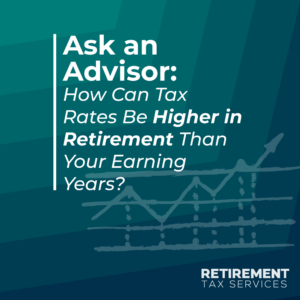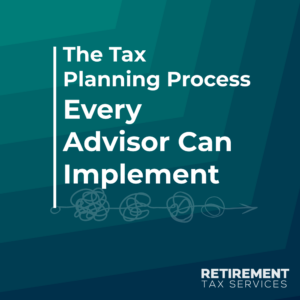Recommended Articles

Ask an Advisor: How Can Tax Rates Be Higher in Retirement Than Your Earning Years?
Required minimum distributions (RMDs) are certainly a reason that a person’s tax rate might go...
Read More
Ask an Advisor: I’m in the Highest Tax Bracket and ‘Plan to Be There Moving Forward.’ Should I Do a Roth Conversion?
If you ask some financial professionals, the answer to this question might be a resounding...
Read More
Is it too late to convert to a Roth?
There is also no earned income requirement to convert to a Roth. As long as...
Read More
The Tax Planning Process Every Advisor Can Implement
The default approach to tax preparation does little to ensure tax planning, and with it...
Read More
